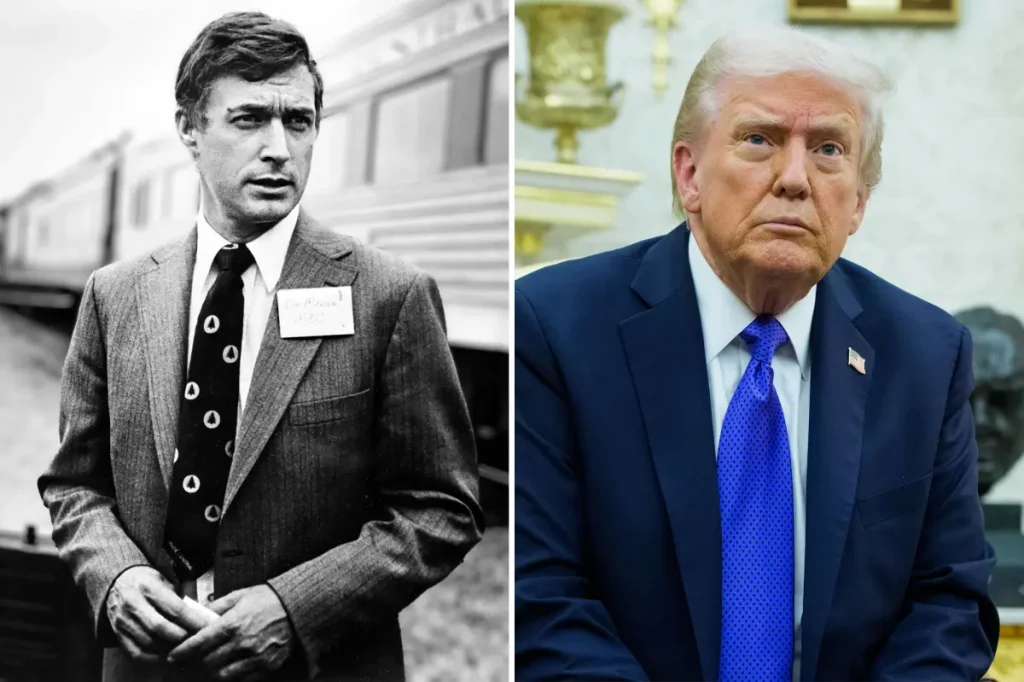Timothy Mellon’s Generous $130 Million Gift to Support US Troops During Shutdown
In a remarkable display of patriotism and generosity, Timothy Mellon, an 83-year-old billionaire businessman from the legendary American banking family, has emerged as the anonymous benefactor who donated $130 million to ensure US troops would be paid during the recent government shutdown. The reclusive heir, grandson of industrialist and former Treasury Secretary Andrew Mellon, chose to make this substantial contribution without seeking public recognition, embodying a level of philanthropy that speaks to deeply held values rather than a desire for acclaim. With an estimated fortune of $14 billion, Mellon’s decision represents not only financial capacity but a profound commitment to supporting the men and women who serve in America’s armed forces.
President Trump had previously announced that “a friend” who “loves the military and loves the country” had made the generous donation, respecting the donor’s wish to remain anonymous at the time. The President noted the unusual nature of such a significant contribution being made without publicity, remarking that the request for anonymity was “pretty unusual in the world I come from.” This comment highlights the contrast between the typical desire for recognition that often accompanies large philanthropic gestures and Mellon’s preference for quiet generosity. The donor’s identity remained a mystery until The New York Times revealed Mellon as the source of the funds in a report published Saturday, bringing to light the face behind this extraordinary act of support for military personnel.
Timothy Mellon’s background as part of one of America’s most storied banking and industrial families provides context for both his wealth and perhaps his sense of national responsibility. As the grandson of Andrew Mellon, who served as Treasury Secretary under three presidents and helped shape American fiscal policy in the early 20th century, Timothy comes from a lineage intertwined with the nation’s economic history. Despite his immense wealth, Mellon has maintained a notably private life, staying out of the spotlight that often follows those with such substantial financial resources. His decision to step forward with financial support during a government crisis reflects a personal connection to national service that transcends political considerations.
The donation itself addresses a practical and immediate concern during government shutdowns – the potential disruption of pay for military personnel. When government funding lapses, those serving in uniform face the prospect of delayed compensation despite continuing their essential duties to the nation. Mellon’s contribution creates a financial safety net that ensures these service members can meet their own financial obligations to their families while continuing to fulfill their commitments to the country. The $130 million represents not just financial support but recognition of the sacrifices made by military families, who often face unique challenges including frequent relocations, deployments, and the stresses associated with service life.
When approached for comment about Mellon’s identity as the donor, the White House directed inquiries to the Department of War and Treasury Department, maintaining some official distance from the private contribution. This response underscores the unusual nature of such a substantial private donation being made to support what would typically be a government responsibility. The situation highlights both the consequences of political gridlock on essential government functions and the potential for private citizens to step into gaps created by these institutional failures. While philanthropic support is commendable, the need for such intervention raises broader questions about governance and funding priorities.
Mellon’s extraordinary gift serves as a reminder of how individual citizens, particularly those with substantial resources, can make significant differences during times of governmental challenge. Rather than a replacement for functional government systems, such actions might best be seen as exceptional demonstrations of civic responsibility and patriotism. The publicity now surrounding Mellon’s initially anonymous gift brings deserved recognition to his generosity while also illuminating the real impacts of government shutdowns on those serving the nation. As the country continues to navigate political divisions that occasionally lead to funding impasses, Timothy Mellon’s contribution stands as both a practical solution to an immediate problem and a symbolic affirmation of support for those who serve in uniform, regardless of the political circumstances that created the need for such intervention.


